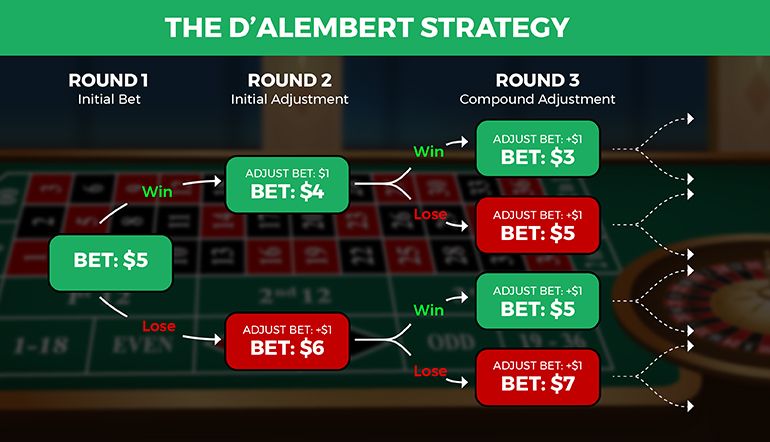In the world of sports betting, finding a strategy that works for you can be a daunting task. With so many different systems out there, it can be overwhelming to choose the one that will give you the best chance of success. One system that has gained popularity in recent years is the D’Alembert betting system. This system offers a more conservative approach to wagering, making it an appealing option for those who are looking to minimize their risk while still having the potential for significant returns.
What is the D’Alembert Betting System?
The D’Alembert betting system is a negative progression system that is based on the idea of balance. It was named after the 18th-century French mathematician Jean-Baptiste le Rond d’Alembert, who believed that over time, there would be an equilibrium between wins and losses. The concept behind the system is simple: after a win, you decrease your bet by one unit, and after a loss, you increase your bet by one unit. This gradual increase and decrease in bet sizes are meant to help you mitigate losses and capitalize on winning streaks.
How Does the D’Alembert System Work?
Using the D’Alembert system is relatively straightforward. You start by choosing a base unit for your bets. This could be any amount you are comfortable with, but it is typically recommended to start with a conservative amount to minimize risk. For example, if your base unit is $10, your bet sizes would look something like this:
Win: If you win a bet, you decrease your next bet size by one unit. So, if your base unit is $10 and you win, your next bet would be $10 – $1 = $9.
Loss: If you lose a bet, you increase your next bet size by one unit. Using the same example, if you lose, your next bet would be $10 + $1 = $11.
By following this pattern of increasing and decreasing your bet sizes, you are able to ride out losing streaks and capitalize on winning streaks. The idea is that over time, the wins and losses will balance out, resulting in a profit.
Advantages of the D’Alembert System
One of the main advantages of the D’Alembert system is its simplicity. Unlike some other betting systems that require complex calculations or strict rules to follow, the D’Alembert system is easy to understand and implement. This makes it a great option for beginners or those who prefer a more hands-off approach to betting.
Additionally, the D’Alembert system offers a more conservative approach to wagering. By gradually increasing and decreasing your bet sizes, you are able to minimize your risk and avoid major losses. This can be particularly appealing for those who are risk-averse or looking to protect their bankroll.
Drawbacks of the D’Alembert System
While the D’Alembert system can be effective in helping you manage your bankroll and minimize risk, it is not foolproof. Like any betting system, there are no guarantees of success, and there is always the possibility of losing money. It is important to remember that no system is infallible, and there is always an element of luck involved in sports betting.
Another potential drawback of the D’Alembert system is that it may not be as profitable as some other systems in the long run. Because of its conservative nature, the D’Alembert system may not allow for as much potential for significant returns compared to more aggressive betting systems.
Conclusion
The D’Alembert betting system offers a safer and more conservative approach to wagering, making it a popular choice for many bettors. By gradually increasing and decreasing your bet sizes based on wins and losses, you are able to minimize your risk and protect your bankroll. While the system is not foolproof and may not lead to massive profits, it can be a valuable tool for those looking to approach sports betting with caution and discipline.
Ultimately, whether you choose to use the D’Alembert system or another betting strategy, it is important to remember that there is no one-size-fits-all approach to sports betting. It is always important to do your research, set realistic expectations, and bet responsibly.
